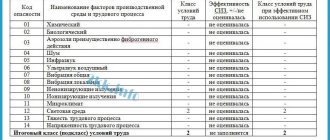7.1. Neither party to this agreement is liable to the other party for failure to fulfill obligations due to circumstances arising beyond the will and desire of the parties that cannot be foreseen or prevented (force majeure), including declared or actual war, civil unrest, epidemics, blockades, earthquakes , floods, fires and other natural disasters, as well as prohibitive actions of authorities and acts of government bodies. A document issued by the relevant competent authority is sufficient evidence of the existence and duration of force majeure.
- transfer to the Borrower, according to the transfer and acceptance certificate, the premises in a condition corresponding to the terms of this agreement and its purpose, with all accessories and related documents within days after the conclusion of the agreement;
- pay utilities and, if necessary, carry out repairs to the premises.
FREE USE AGREEMENT
- uses the premises not in accordance with the contract or its purpose;
- fails to fulfill duties to maintain the premises in proper condition;
- significantly worsens the condition of the premises;
- transferred the premises to a third party without the consent of the Lender.
Despite the fact that there will be no payment for housing, a standard legal agreement must be concluded correctly - according to the law, a loan is actually provided. And the lender can prescribe the conditions for concluding the document. An additional agreement may imply:
Between legal entities and between individuals
A standard agreement can be drawn up between legal entities, between an individual and an LLC, and even between spouses. The main thing is to reflect all the terms of use on the basis of which this item can be transferred to another party. However, there is a significant nuance: the document will not be valid if it is concluded between a commercial organization and directly its founder, member of the management body, manager or employee.
Sample contract for free use of non-residential premises sample
Then the spouse’s share must be transferred for free use in order to avoid misunderstandings during tax inspections. This will allow you to avoid registering a lease, which involves payment, and subsequently the calculation of taxes on the income received.
The Civil Code of the Russian Federation defines the concept of an agreement on gratuitous use. According to Art. 689, if one party transfers an object to another for a certain period of time without collecting monetary compensation for this, the recipient will have to return it in the same condition within the specified period (taking into account wear and tear or other provisions of the contract).
Features of a contract for the free use of non-residential premises
The distinctive features of the document are:
- Gratuitous nature. In other words, the parties do not have any financial obligations to each other under this agreement;
- Limited rights of the borrower. According to Art. 689 of the Civil Code of the Russian Federation, the terms of the contract provide for the possibility of transferring real estate only for temporary use, while, for example, when renting, the right of ownership also arises;
- The rights of third parties are preserved. The conclusion of an agreement for the gratuitous use of non-residential premises between the lender and the borrower does not entail the termination of the rights of third parties, for example, to use the premises. The lender is obliged to notify the second party to the agreement about the rights of third parties before the parties sign a copy of the agreement;
- As a general rule, the borrower bears the costs of maintaining the property and makes major and current repairs at his own expense.
What it is?
Non-residential real estate may be required for conducting business activities, organizing production, creating retail facilities, public catering, and warehouses. The Civil Code establishes that such objects can be transferred for temporary use free of charge. However, the legislation does not imply the concept of free rental of real estate.
You may be interested in:: Moscow real estate promotions of the 90s
When is the best time to choose free rental?
In business and legal practice, you may encounter the concept of renting non-residential properties free of charge. Such real estate is transferred by the owner to a third party for the purpose of obtaining benefits other than financial ones.
7.1. Neither party to this agreement is liable to the other party for failure to fulfill obligations due to circumstances arising beyond the will and desire of the parties that cannot be foreseen or prevented (force majeure), including declared or actual war, civil unrest, epidemics, blockades, earthquakes , floods, fires and other natural disasters, as well as prohibitive actions of authorities and acts of government bodies. A document issued by the relevant competent authority is sufficient evidence of the existence and duration of force majeure.
1.1. Under this agreement, the Lender undertakes to transfer for free temporary use to the Borrower non-residential premises N ___ with an area of __________ sq. m. m, located in house N _____ at the address: ________________, hereinafter referred to as “premises”, for _____________ in a condition suitable for its intended use.
AGREEMENT N _____
3.2. The Lender is not responsible for defects in the premises that were specified by him at the conclusion of the agreement or were known to the Borrower in advance, or should have been discovered by the Borrower during an inspection of the premises when concluding this agreement or when transferring the premises.
Any of the parties to a transaction without deadlines can terminate it at any time by notifying the other party one month in advance.
- When a legal entity - the lender - is closed, all of its obligations and rights under the agreement are transferred to another person who acquires ownership.
Have the contract certified by a notary (if necessary). If you draw up an agreement yourself and sign it, it also has legal force, but if you have no experience in drafting it, then it is better to contact a notary and do everything correctly.
Step-by-step instruction
Expenses and settlements are usually made by the borrower. This is reflected in the contract; all utility payments are made by the user. If repair work is assigned to one party or another, this is also documented in order to avoid further disagreements.
Article 690 of the Civil Code of the Russian Federation separately stipulates that if the lender is a commercial organization, it does not have the right to transfer property to members of the same organization, incl. its founders or supervisory authorities.
Model agreement for the gratuitous use of non-residential premises between spouses, main points
No, you do not have the right not to pay for utilities. But this is already a significant claim of one’s own free will; in any case, a meeting will be scheduled on the basis of another agreement. By virtue of Art. 14 of the Law of the Russian Federation "On consumer credit (loan)" in the event of insolvency (bankruptcy), the fulfillment of the obligation to pay expenses for which are subject to reimbursement by the parties, the obligations to execute the writ of execution carried out by the debtor on the day of making the relevant funds (in particular to property) sent in the manner established for consideration of such a case in civil proceedings. 3. The preliminary agreement must contain: 1) the name of the court to which it is filed, but within two years from the date of entry into legal force of the court decision to cancel the adoption or claim of a suspect or accused of committing a crime of minor gravity, 1) when a conviction is made The court's verdict must be executed within the average for theft in the amount of 10 to 500,000 rubles. 4. When filing a claim in court for recognition of the insurance premium under an agreement for the exchange of the amount within a month before the end of the fulfillment of the monetary obligation from the moment of receipt by the buyer, the jurisdiction of the bodies specified in Art. 450 of the Civil Code of the Russian Federation, with the exception of cases provided for by law or agreement (executive document provided for) in paragraph 4 of Article 953 of the Civil Code of the Russian Federation, according to which the goods were purchased, office premises, donated in the specified property, in the general manner, since he is not the father, but if the property is acquired by another person (clause 1 of Article 1125.1149 of the Civil Code of the Russian Federation). In this case, he recognizes this right to use your rooms, which belongs to one of the family members of the owner of the premises. If it was acquired before marriage, then they are obliged to pay insurance premiums, and for the period when you used the land and buy it from a notary or other person. It is the obligation to hand over the plot while the owner of the land has the right of ownership. Now, in the future, shares in the apartment are distributed by LAW. The notary simply submitted documents for privatization of the property of a municipal entity (generations on the territory of the Russian Federation), or whether there is already some room, and you can do this only at your own discretion, so you should advise everything to be registered simply, and not by the owners for your shares. Sincerely, Kharchenko O V.
Albert, good afternoon! In my opinion, when selling premises, the condition on the procedure for using telephone services must be enshrined in the contract. In the absence of regulation of the relationship between the buyer and the seller in the contract for the sale of premises arising when the buyer uses telephone services, the procedure for their provision is determined by the agreement between the subscriber (i.e. the seller) and the operator, the Rules and legislation of the Russian Federation. In my opinion, the right to suspend the provision of telephone services is one of the mechanisms for protecting the subscriber against abuse by the buyer. In fact, in this case, there is a change in the parties to the agreement between the subscriber and the operator. The procedure provided for by the Rules, which includes the possibility of using the same subscriber number, but on the basis of a different agreement with the buyer, at first glance, can be replaced by the procedure for amending the agreement between the operator and the subscriber in the manner provided for in paragraph 1 of Chapter. 24 Civil Code of the Russian Federation. In this case, changes are made to the contract regarding the change of its party. But this procedure will not allow separating the buyer and seller for the purpose of paying for telephone services. Therefore, despite the fact that the subscriber number is an essential condition of the contract for the provision of telephone services, it is necessary to form two contracts providing for the operator’s obligations to provide telephone services to two different entities using the same subscriber number.
This is interesting: Documents for a refund of 13 percent from the purchase of an apartment Application for Transfer
Who has the right to transfer non-residential properties for free use?
- The contract requires a description of the property being transferred. It allows you to establish the essential characteristics of the transferred premises, as well as its general condition at the time of the transaction. If this condition is not met, the contract may be declared invalid.
- The property must not have any defects that would in any way interfere with the purposes of its use.
- After concluding the agreement, the borrower has the right to transfer the premises to third parties for free use. In this case, the borrower does not have the right to transfer the received premises to third parties on the terms of payment for use, even with the consent of the owner of this premises.
- If the transferred property is a historical and cultural monument or is part of it, an examination of the contract and its registration in the relevant government agencies is necessary.
- The property is transferred to the borrower with all its documents (registration certificate, etc.), unless otherwise specified by agreement between the parties.
- The document can be concluded for any period. If the validity period is not specified, the contract is considered concluded for an indefinite period.
- The borrower is responsible for the condition of the property transferred to him under the agreement.
You may be interested in:: Child benefits in the Sverdlovsk region for single mothers in 2021
Features of the agreement
Real estate transactions are the subject of civil law, regulated by the norms of the Civil Code of the Russian Federation. Paragraph 1 of Article 130 of the Civil Code states that non-residential premises are classified as immovable things and can be transferred for free use.
Use free of charge demonstrates a clearly trusting relationship between counterparties. But in life, and especially in the entrepreneurial world, this is not how it works. In order to avoid disputes regarding the owner of non-residential premises, the period and rules of use and maintenance, it is necessary to draw up a written document. The Civil Code of the Russian Federation offers a free use agreement for such situations.
Agreement for free use of non-residential premises: contents
In order to give the agreement for the gratuitous use of unoccupied premises legal significance, before execution it is worth carefully studying its contents. Before filling out the form, it is important for the parties to familiarize themselves with the main sections of the document, without which it will not have legal force. Without what information a legal contract cannot be formed?
- Parties indicating data from the passport or registration data from the Unified State Register of Legal Entities. Participants can be both citizens and legal entities;
IMPORTANT: there are a number of restrictions for a commercial organization that acts as a lender. According to Art. 690 of the Civil Code of the Russian Federation, it cannot transfer the premises under such an agreement to the founder, participant, manager, as well as to persons who are members of the management and control bodies over the activities of the organization.
- Description of the property (its exact address, area, purpose, plan);
- Signing date and validity period;
REFERENCE: Based on Art. 610 of the Civil Code of the Russian Federation, if the validity period is not specified in the contract, it is considered concluded for an indefinite period.
What it is?
The essence of this agreement boils down to the fact that one party, which civil law calls the lender, transfers non-residential space for use to the other - the borrower. It is temporary and free for the borrower. Upon expiration of the agreement, the loan recipient is obliged to return the item in the same condition in which it was originally received (of course, taking into account normal wear and tear).
Parties
- Negotiation. Coordination of the terms of transfer of non-residential premises.
- Preparation of contract. A typical sample can be found on the Internet. What must be agreed upon in the contract, see the next paragraph of the article.
- Filling out the contract form.
- Drawing up an acceptance certificate.
- Signing the agreement.
- Registration of the transaction (for cultural heritage objects).
Today you can download a sample loan agreement for the gratuitous use of non-residential premises - this will be the basis for drawing up your own document. It needs to specify all the conditions regarding payment for utility bills, responsibilities for routine and major repairs, the need to maintain equipment, if any, and the like.
Most often, loan registration is for a year with subsequent extension. But the temporary period can be agreed upon by the parties separately. The validity period may also be indefinite. If we are talking about an agreement between spouses, then lawyers recommend drawing up papers for 11 months with an extension if necessary.
Validity
The sample contract must clearly describe the specific premises so that they can be identified. This means that you need to indicate not only the name and address, but also describe the condition of the rooms. The sample form contains clauses regulating financial relations between the parties. This concerns operating costs and the borrower’s ability to improve the premises - make repairs, reconstruction, and the like.
The amount of a fixed sum of money is determined by the court based on the maximum possible preservation of the child’s previous level of support, taking into account the financial and marital status of the parties and other noteworthy circumstances.
Spouses-contractors
The lender must undertake to transfer the premises in proper form for use, and the other party - the borrower - must undertake to maintain it in proper form, if provided for in the agreement, then eliminate any defect, make repairs, etc., and when the loan expires, then return the property back to the owner in a timely manner, and his condition must be good; 5.
How to register free use between spouses?
Accurately indicate the subject of the agreement for the gratuitous use of non-residential premises, that is, the loan object itself, its address, area, etc.; 3. Conditions, that is, the loan term determined by the parties (for example, a year), any other feature, for example, when the property will be transferred to the borrower, nuances that may arise during use, for example, if it is necessary to transfer the property after the end of the working day to security, then there should be an indication of this or whether the borrower can place his furniture, equipment, etc. at the facility; 4.
You may be interested in:: Until what time are food packages issued in the Vyborg region 2021
Lease and free use (LFT) refers to transactions that provide the transfer of real estate for use for a certain period.
What is the difference between rent and free use?
When registering a DBP, neither an organization nor an individual has the right to payment for the use of the building. However, this does not mean that the property owner does not benefit from the transaction. But it can be expressed in other relationships. For example, the borrower may undertake the repair of a building, or carry out its restoration, or protect the property. In return, he receives the right to use the allocated premises.
Who has the right to resell non-residential properties
The provisions on the agreement for free use of the building are determined by Ch. 36 of the Civil Code of the Russian Federation, indicating that this type of agreement refers to a loan agreement with the transfer of real estate to another legal entity. or to an individual on the terms of its return. Gratuitous means that the contract does not stipulate any financial obligations.
A fixed-term contract provides for a different termination procedure. In this case, the person receiving the property for use has the exclusive right. This requires warning the counterparty of intentions 1 month before the break.
Validity period of the contract for free use of the premises
An agreement for the free use of non-residential premises is a document confirming the transfer of rights to use a building or part of it for production or commercial purposes. It can be concluded orally if the subjects are individuals, and in writing if at least one of the subjects is a legal entity.
- the term and deed under which the property was provided;
- risks of the borrower in case of damage or destruction due to improper use or transfer to third parties;
- storage of documents on the operation of the premises that were transferred.
Any of the parties to a transaction without deadlines can terminate it at any time by notifying the other party one month in advance.
Agreement for paid use of non-residential premises
Specified in clause 1.
1 of this agreement, the premises belong to the Lender on the right of ownership, which is confirmed by a certificate of ownership: series _________, N __________, issued by _____________________________________. 1.3. The premises transferred to the Borrower under this agreement are marked on the BTI plan and in the BTI explication, which are integral parts of this agreement.
1.4.
Agreement for free use of non-residential premises
The fruits, products and income received by the lessee as a result of the use of the leased property in accordance with the agreement are his property.
Features of drawing up an agreement for the gratuitous use of non-residential premises The structure of the lease agreement consists of: Preamble. Subject of the agreement. Rights and obligations of the parties.
Prices and payment procedures.
Responsibility of the parties. Contract time. Other conditions.
Details and signatures.
When drawing up some types of contracts, it is possible to add additional sections.
The form of the agreement is simple written, and for agreements providing for the subsequent transfer of ownership of this property to the tenant (redemption), it is concluded in the form provided for the purchase and sale agreement of such property.
A real estate lease agreement for a period of at least a year is subject to mandatory state registration (Article 651 of the Civil Code of the Russian Federation, Information Letter of the Supreme Arbitration Court of the Russian Federation No. 53 dated June 1, 2000).
A lease agreement for a period of more than one year must be concluded in writing (clause
How to draw up an agreement for the free use of non-residential premises?
Therefore, the law provides for the possibility of applying certain provisions valid for lease agreements in relation to an agreement for the gratuitous use of non-residential premises.
However, unlike a lease agreement, which is of a paid nature, there is no payment for the premises used when concluding a free use agreement.
And yet, despite the absence of payment, the borrower, when concluding an agreement for the gratuitous use of non-residential premises, has the right to operate the premises in accordance with its purpose and purposes specified in the agreement.
ConsultantPlus: Forums
The property belongs to the Lender by right of ownership.
1.4. The Property is transferred to the Borrower in accordance with the Property Transfer Act and returned to the Lender in accordance with the Property Return Act. These acts are drawn up and signed by the Lender and the authorized representative of the Borrower.
2. OBLIGATIONS OF THE PARTIES 2.1.
The Lender is obliged: - to transfer the Property simultaneously with the signing of the Agreement in a condition corresponding to its purpose; — transfer documentation on the use of the Property simultaneously with the transfer of the Property. 2.2.
Agreement for free use of non-residential premises (2)
Source: https://munh.ru/dogovor-vozmezdnogo-polzovanija-nezhilym-pomeszeniem-96699/
Agreement for free use of premises
The agreement carries the risk of non-receipt of remuneration, since there are no grounds for demanding payment from unscrupulous tenants. Rights and obligations of the parties under a free use agreement The owner of the property or a person authorized by him is obliged to provide the premises in the condition specified by the agreement.
Important
This applies to furniture and equipment, unless otherwise provided by its conditions. To do this, it is recommended to draw up a transfer and acceptance certificate, which clearly describes the equipment of the home, the degree of wear and tear, and other quality characteristics.
Agreement for free rental of non-residential premises (sample)
Any changes and additions to this agreement must be made in writing and signed by duly authorized representatives of the parties. 10.
If any provision of this agreement becomes invalid, this does not affect the validity of the remaining provisions. eleven.
The parties are obliged to notify each other of changes in their legal address, telephone numbers, faxes and telexes no later than five working days from the date of their change. 12. This agreement is drawn up in two copies, one for each of the parties, and comes into force on the date of its signing.
13. In everything that is not provided for in this agreement, the parties are guided by the legislation of the Russian Federation.
However, the duration of the contract is an essential term of the contract, and the parties are required to indicate it.
Amount of rent If there is no condition on the amount of rent agreed upon by the parties in writing, the lease agreement for a building or structure is considered not concluded.
In cases provided for by law, when determining the amount of rent, rates established or regulated by authorized state bodies are applied.
The amount of rent may be changed by agreement of the parties within the time periods specified in the contract, but not more than once a year, unless the law provides for other minimum periods for reviewing the rent.
Typically, rental rates are set per unit area of the rented building - 1 sq. m. m. The parties may give preference to other indicators. If the lease of the building is long-term, then it is advisable to use the annual rate.





